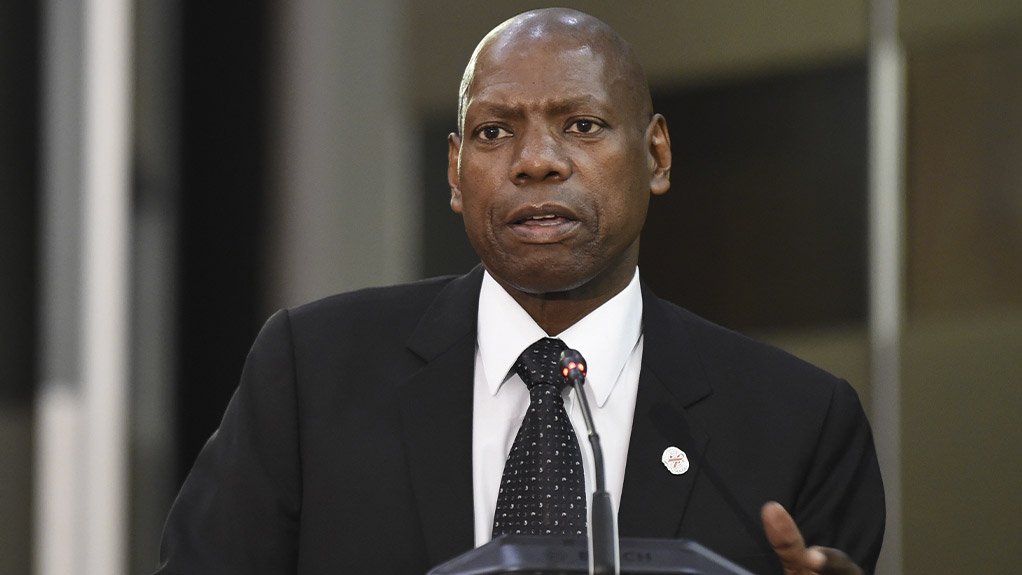The manner in which South Africa's rate of Covid-19 infection has slowed, is unprecedented and probably the result of the government's rapid response after the first cases were recorded here, Professor Salim Abdul Karrim, a special advisor to Health Minister Zweli Mkhize, said on Monday.
"We now know that we have a different trajectory than we have seen anywhere else in the world," Abdul Karrim told a media briefing, where he attributed the decline in the exponential increase in cases to rapid interventions by the government.
Abdul Karrim said South Africa had been braced for a dramatic exponential increase in Covid-19 infections, once the disease arrived in the country in March with citizens who had travelled abroad, and this was the case in the fortnight after the first case was confirmed.
During this period, infections followed the same, predictable trajectory evidenced in the United Kingdom and other countries now battling severe outbreaks of the novel coronavirus.
However, on March 26, the day before a strict national lockdown came into effect, the average number of new daily infections slowed to 76. In the second week of the lockdown, the average daily increase dropped to 67 new infections.
The government has quantified the slowdown as a tenfold drop in the infection rate once the lockdown was implemented.
Abdul Karrim said this picture defied predictions on the pandemic for which government had braced. These were that the first wave of infections in travellers, and the second wave of people infected through contact with them, would be followed by a third wave in which community infection spread like wildfire.
"We are just not seeing that community level transmission at this point. It is there but it is not spreading in that way that we expected," he said, describing the current trajectory as "unique".
"It didn't bridge to widespread community transmission. We simply did not see that exponential increase."
Abdul Karrim said there was a possibility that the emerging atypical picture could be attributed to inadequate levels of testing but this was unlikely given the concerted increase in screening and testing for symptoms and infections. By Monday, the total number of tests conducted stood at 83 663.
"The more likely scenario is that what we have managed to do, is stem community transmission," Abdul Karrim said.
He explained that the fact that the rate eased on the date the lockdown began, could not be attributed to the lockdown itself -- because of the two-week gestation period for a new infection. Instead, the drop could be considered the result of measures the government took in the fortnight before the lockdown, notably restrictions on travel and large gatherings and contact tracing.
The direct impact of the lockdown will now reveal itself in the coming weeks, he added.
Abdul Karrim stressed that lifting or easing the lockdown, which has been extended until the end of April, could see the trajectory turn and the exponential increase the state had feared, materialise.
"Once we end the lockdown, and we are going to have to end it at some point, we have 57-million people [and] we have no immunity, we have no vaccine, we have no treatment," he said.
In terms of epidemiological modelling, the point at which restrictions could be eased, would be an average daily increase in infections of 44 new cases, he argued.
Abdul Karrim said the special attention had to be paid to the greater Cape Town, Johannesburg and eThekwini areas, where there was a risk of a rapid upswing in community transmission, and to protect the country's elderly citizens, who were at the greatest risk, along with those whose immune systems have been compromised by HIV and tuberculosis.
He mooted the possibility of a selective form of lockdown that would see the elderly remain confined, possibly in voluntary fashion, until September.
By Monday, South Africa had recorded 27 Covid-19 fatalities and 2 272 infections, according to the latest figures given by Mkhize.
The government has won praise for reacting with speed to contain the virus. It closed borders and imposed a lockdown faster than several European nations, and began contact tracing at a comparatively early stage.
Mkhize said South Africa's efforts to flatten the curve were working but he cautioned that the early indications of success did not mean South Africa was less susceptible to the pandemic than other nations.
"This is a long march that requires us to focus and know that each and every person's actions count," he said, adding that the decision on future confinement measures were not his alone to take.
"We are trying to push the peak of the curve as far away as we can but at the end of the day there are many factors to consider, there are also socio-economic factors."
The briefing, which grouped several senior health care experts, came amid suggestions that President Cyril Ramaphosa should ease the lockdown because of the dire effect it was having on the economy and particularly on the country's poor majority.
EMAIL THIS ARTICLE SAVE THIS ARTICLE
To subscribe email subscriptions@creamermedia.co.za or click here
To advertise email advertising@creamermedia.co.za or click here











